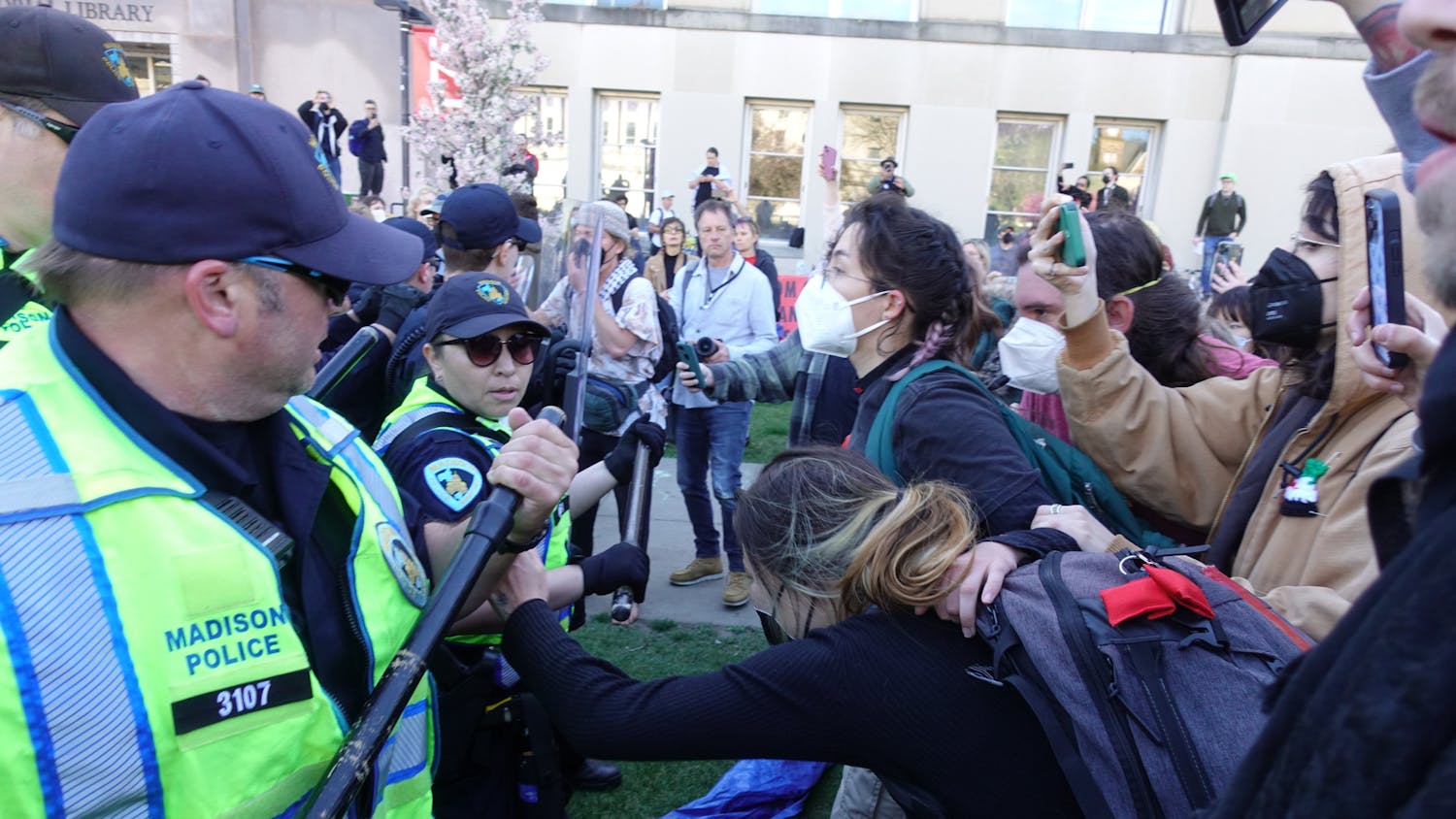More than 100 people from the Madison community gathered at the Pyle Center to discuss impacts of Immigration and Customs Enforcement arrests that occurred across Wisconsin in late September.
UW-Madison’s Asian American Studies Program hosted an event called “Four Days of Terror, Four Days of Hope” Tuesday to spread awareness about the recent ICE arrests and bring hope as well as action to the community.
From Sept. 21-24, ICE deportation officers arrested 83 immigrants throughout Wisconsin, and 20 of those were residents of the Dane County area.
“Today is a very special opportunity for us to learn about parts of our community that are unseen,” said Armando Ibarra, director of the Chican@ and Latin@ Studies program at UW-Madison. “This is a place of learning and a place of respect.”
Followed by Ibarra’s opening, two testimonials were shared
“On Friday night, my brother got taken away from us. I was still asleep. It was very tragic for me. My mom ran into my room and started crying and told me that three guys came and took my brother,” said Mai Thao Kang, a Madison Area Technical College student.
Thao Kang felt sad and afraid after learning her brother was taken by ICE officers.
“Every night I would give him a hug before I go to sleep; I don’t know if that will happen to him again,” Thao Kang said.
Four panelists joined the conversation at the front of the room. They discussed the work they do in their fields to help alleviate burdens communities face in regards to the ICE arrests and raids.
“There is a tremendous amount of burdens going on in our community right now. We want to make sure that we approach them in partnership to take care of our community,” said Karen Menendez Coller, executive director of Centro Hispano of Dane County.
Other panelists talked about issues of immigration, deportation and broken systems along with the impacts these have on communities of color.
Immigration and criminal justice systems are broken, and when these two systems are combined for the purpose of political agendas, “families, kids, and economies are impacted,” said Mario Garcia Sierra, a coordinator for Voces de la Frontera, Madison Chapter.
“Immigration is always an issue. There’s always a tremendous amount of fear about wanting to establish your roots in this community and being told that you don’t belong,” Menendez Coller said.
Another panelist discussed the issue and impacts of deportation, specifically in southeast Asian communities. The issue of profiling against immigrants in associated with crime was also addressed.
“We made a strategic commitment to never talk about the good or the bad immigrant or what kind of crime is deportable and what kind of crime isn’t. No crime is deportable, because deportation is a life sentence,” Freedom Inc. Co-Executive Director Kazbuag Vaj said.“I don’t care if you did check fraud or if you murdered somebody. If you’ve done your time, you get to stay, and you also get a second chance.”
Panelists shared closing remarks about having hope and their continued hard work to help out these communities.
“If you really think of us as equal, if you really think of us as part of the future of the state, well, it’s time to come to the table and create the changes that are really going to secure our future and this community,” Menendez Coller said.






